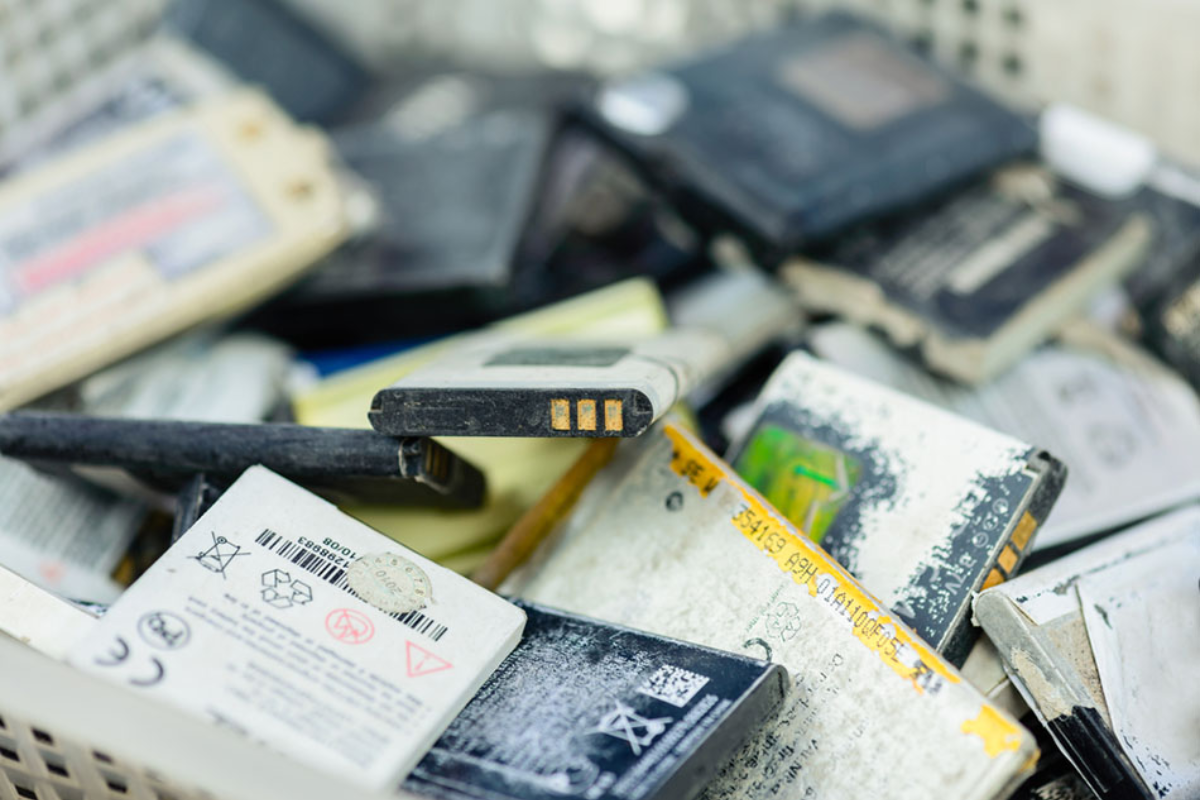
Electronics related bills both passed and died this month across the U.S. as legislative sessions wind down. | Vietnam Stock Photos/Shutterstock
Governors in Washington and Nebraska signed e-scrap bills into law recently, giving Washingtonians the right to repair their consumer electronics and Nebraskans an extended producer responsibility program for batteries.
LB 36, the Safe Battery Collection and Recycling Act, marks Nebraska’s first EPR attempt, according to the Nebraska Recycling Council. It was signed into law on May 20 after passing a final reading vote of 43-6 on May 14.
Executive Director of the Nebraska Recycling Council Kim Carroll Steward told E-Scrap News the passage of the bill “is a major win for safety, economic, and environmental protection in Nebraska.”
“By improving the way we manage and dispose of lithium batteries, this legislation will help prevent fires, protect Nebraskans, and increase diversion from our landfills, ” she added. “It’s a smart, forward-thinking step toward a safer, cleaner future for our communities.”
The law does not set recycling targets but enacts a battery landfilling ban effective Jan. 1, 2028. The same date is the deadline for producers and retailers to join a battery stewardship organization. By 2029, all batteries must be marked with its chemistry and an “indication that the battery should not be disposed of as household waste.”
Those requirements don’t apply to batteries that are less than one-half inch in diameter.
Producer plans are due to the state by Jan. 1, 2027, and they must contain details of how the producers intend to meet convenience standards. Under the law, producers must also report on the weight of batteries sold and collected, as well as a breakdown by battery chemistry. Point-of-sale fees are not permitted to fund the stewardship plan.
In Washington, right-to-repair bill HB 1483 was signed into law on May 19, following a final vote in the Senate of 48-1 on April 10 and the House concurred on April 17 with a vote of 94-1.
The law applies to covered products first sold or used in the state on or after July 1, 2021. It would ban parts pairing for devices sold after Jan. 1, 2026.
It aims to “broaden access to the information and tools necessary to repair digital electronic products, including computers, cell phones, appliances, and other nonexempted products in a safe, secure, reliable, and sustainable manner, thereby increasing access to appropriate and affordable digital electronic products, supporting small businesses and jobs, and making it easier for all residents of Washington state to connect digitally,” according to its text.
In addition, the law has a section requiring repair providers to provide certain information to customers before products for repair, including the steps to take to safeguard data and their right to privacy under various state laws.
WashPIRG in a press release called the signing a “landmark win.” Charlie Fisher, senior advisor with WashPIRG, added that “as a tech industry leader, Washington is no stranger to innovation.”
“I’m proud that we’re moving forward on an innovation even more critical than a new gadget: the right to fix our electronic devices,” Fisher said. “By eliminating manufacturer restrictions, the Right to Repair will make it easier for Washingtonians to keep their personal electronics running. That will conserve precious natural resources and prevent waste.”
Withdrawn and dead bills
As is typical in any legislative session, not all bills make it into law. With legislative session coming to a close in many states this month, here are some e-scrap-related bills that died:
- Alabama HB 476, a right-to-repair bill that failed to move out of committee before the end of the legislative session.
- Alaska SB 61, an electronics EPR bill that failed to move out of committee.
- Alaska SB 111/HB 162, a pair of right-to-repair bills that failed to move out of committee.
- Florida S 1132, a right-to-repair bill that was withdrawn.
- Georgia HB 320, a solar panel landfill ban bill that failed to move out of committee.
- Hawaii SB 391/HB 332, bills that would have expanded the current e-scrap EPR program to include li-ion batteries. They failed to move out of committee.
- Indiana HB 1060, a right-to-repair bill that failed to move out of committee.
- Iowa SF 545/HF 726, an EPR bill for batteries that failed to move out of committee.
- Maryland SB 591/HB 931, electronics EPR bills that failed to move out of committee.
- Maryland SB 686, an EPR bill for batteries that failed to move out of committee.
- Minnesota SF 1690/HB 1420, EPR bills for circuit boards, batteries and electrical products that failed to move out of committee.
- Missouri SB 593/HB 1508, EPR bills for batteries that failed to move out of committee.
- Missouri HB 582, a right-to-repair bill that failed to move out of committee.
- New Mexico SB 69, a right-to-repair bill that failed to move out of committee.